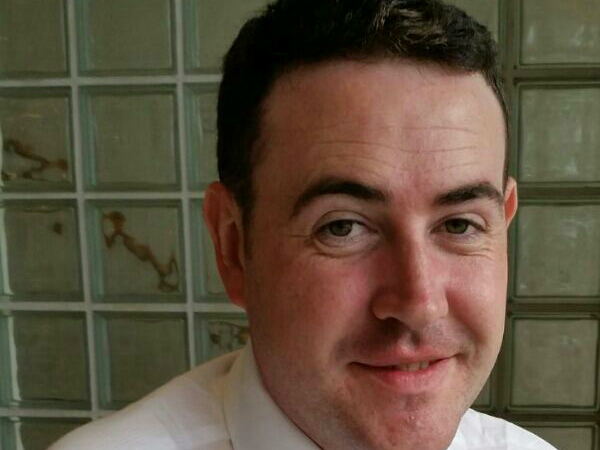
Everyone has a different reason for doing what they do. I became a journalist because I wasn’t good looking, athletic or Portuguese enough to be Cristiano Ronaldo.
For a care leaver who went into social work, it’s probably easy to paint a picture of a person looking to change a system they felt could have been better for them. However, for Jonny Hoyle, a child protection social worker in North Yorkshire, it’s quite different.
“If you’re going to come into this line of work you’ve got to be in it for the right reasons and the right reasons are to make a difference for the children and young people you see and you work with – rather than to right any wrongs, to make any changes.
“My professional interest has been in child protection…I would say that the reason I’m a social worker isn’t because I was looked after. I know that there are some young people who grow up with poor experiences who want to become a social worker to do it differently. I don’t have any major hang ups about being looked after. In fact it’s probably one of the best things that ever happened to me, because it gave me the stability to go on and have a successful life.”
Stability
That stability came from a foster placement Hoyle started when he was just 13-years-old. It was meant to be an emergency, one-night stop. But Hoyle stayed and his foster carers played a crucial role in his upbringing and his life since leaving care – Hoyle’s own children now call those foster carers nanny and grandad.
While his experiences of the care system may not be Hoyle’s reason for entering social work, he says they do influence some of his practice.
“There’s silly stuff – I absolutely break my neck to make sure I’m not late for visiting children. In some strange way that’s about me recalling waiting in for social workers who are late. They are not late because they want to be, they are late because it’s that kind of job.”
Hoyle says he “never had any intention” of becoming a social worker when he was growing up. His path into the profession began after leaving care. He spent time with the North Yorkshire council’s leaving care team and eventually took on a job as a leaving care and development worker.
The experience whet Hoyle’s appetite for social work. It also cemented his desire to, outside of his professional role, campaign for change for children in care. He helped set up A National Voice – an organisation run by children in care and care leavers – and has been its chair for the past eight years.
Not a job
“I’ve always campaigned for changes, I know that things can be done better. Things could have been done better for me when I was a kid,” Hoyle says.
“Some of the things I’m really passionate about is social work not just being a job, but being about working with children.”
The local authority Hoyle now works for is the same one that cared for him as a child. With so much of his life spent in and around the same council, have things ever got too familiar or strange?
“My last two managers were my social workers,” Hoyle says. “I think it was fine,” he adds, laughing, “they may have found it strange.”
“My manager for 10 years before that when I was a family support worker was also one of the first social workers I ever saw. It’s an interesting dynamic to look at, but I think it probably is what you make of it.”
The most important thing for Hoyle is the impact his work can have on those that count on him.
“It’s very easy to see your job as being 9-5. Come to work, do your stuff, write it up and it’s done. But actually it’s about those children, their memories and what that sets them up for.
“Within my role here, it’s always going to be a part of me knowing that there are children and young people that I have that influence on. And I hope that the things that I do make a difference to them.”


 Bournemouth, Christchurch and Poole
Bournemouth, Christchurch and Poole  Hampshire County Council
Hampshire County Council  Lincolnshire County Council
Lincolnshire County Council  Norfolk County Council
Norfolk County Council  Northamptonshire Children’s Trust
Northamptonshire Children’s Trust  South Gloucestershire Council
South Gloucestershire Council  Wiltshire Council
Wiltshire Council  Wokingham Borough Council
Wokingham Borough Council  Children and young people with SEND are ‘valued and prioritised’ in Wiltshire, find inspectors
Children and young people with SEND are ‘valued and prioritised’ in Wiltshire, find inspectors  How specialist refugee teams benefit young people and social workers
How specialist refugee teams benefit young people and social workers  Podcast: returning to social work after becoming a first-time parent
Podcast: returning to social work after becoming a first-time parent  Podcast: would you work for an inadequate-rated service?
Podcast: would you work for an inadequate-rated service?  Family help: one local authority’s experience of the model
Family help: one local authority’s experience of the model  Workforce Insights – showcasing a selection of the sector’s top recruiters
Workforce Insights – showcasing a selection of the sector’s top recruiters 

 Facebook
Facebook X
X LinkedIn
LinkedIn Instagram
Instagram
Comments are closed.